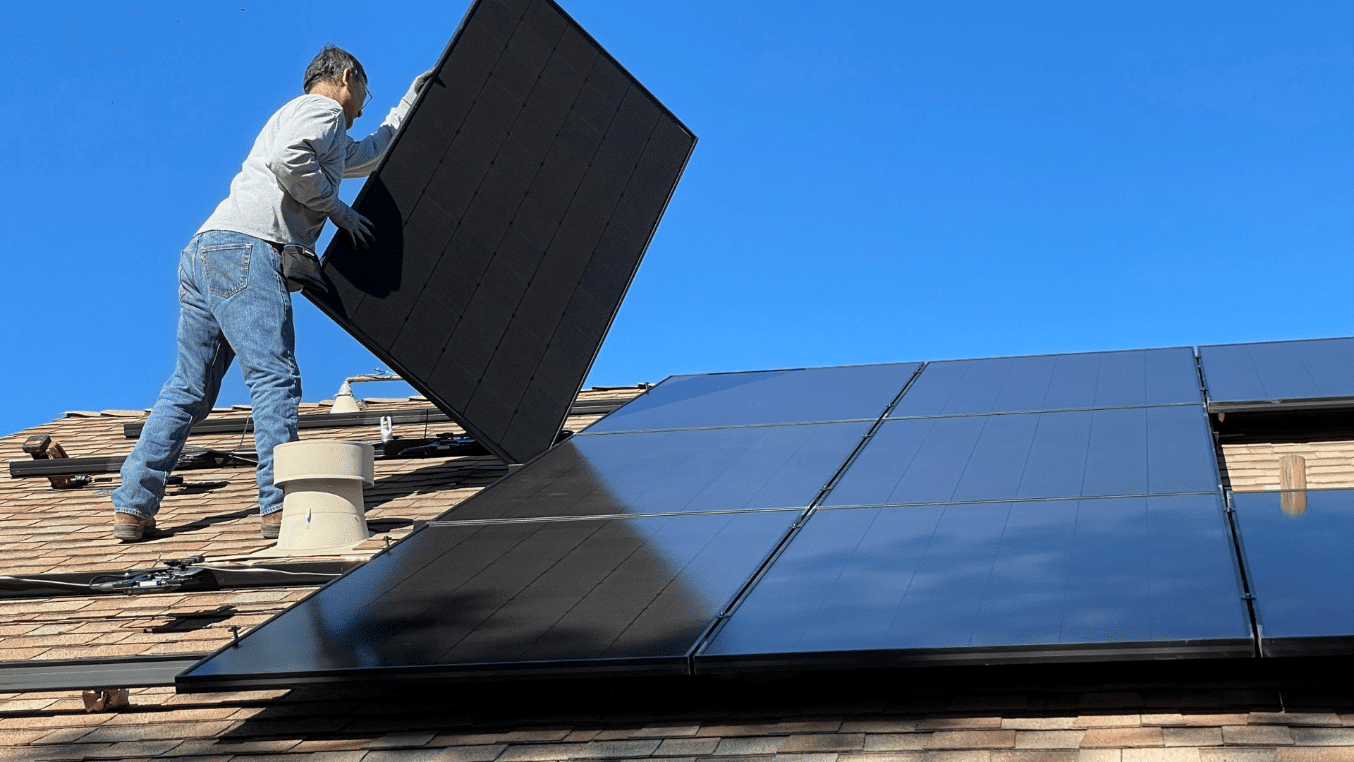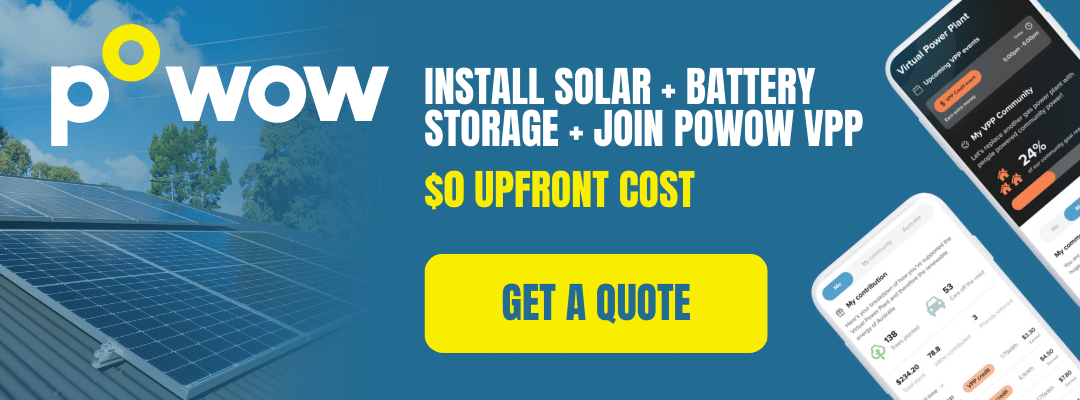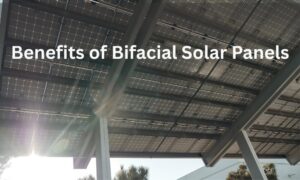On this page
If you’re considering installing solar, you will undoubtedly have many questions for your installer – but one often overlooked query is if you’ll need a building permit or approval from your state or local council.
This article will cover the various requirements via state and territory.
The basic council approval requirements for solar panels in Australia
In general, the installation of solar panels on residential properties in Australia falls under the category of “exempt development” or “complying development,” which means that it does not require a full development application (DA) to the local council. However, there are some basic council approval requirements that homeowners must be mindful of, as they may vary slightly from council to council.
It’s worth noting that while solar panel installations are generally exempt or comply with developments, it’s still important to check with your local council to understand the specific requirements that may apply in your area. Each council may have its own set of guidelines, and it’s essential to ensure that your solar panel installation complies with these requirements to avoid any potential issues in the future.
While solar panel installations are generally supported and encouraged by local councils in Australia, there are some basic council approval requirements that homeowners need to be aware of. These requirements may vary from council to council.
Most councils have regulations that dictate the size and placement of solar panels on rooftops. The total area of the solar panels may also be limited to a certain percentage of the roof’s surface area. It’s important to check your local council’s guidelines to ensure your solar panel installation complies with these requirements.
If your property is located in a heritage or conservation area, additional council approval may be required for the installation of solar panels. Local laws typically protect these areas, and any changes to the external appearance of buildings, including solar panel installations, may require approval from the local council.
Solar panel installations must comply with relevant building codes and standards, including the Australian Standards for photovoltaic (PV) installations. These standards cover aspects such as structural integrity, electrical safety, and fire safety. It’s important to engage a qualified and accredited solar installer familiar with these standards to ensure your installation meets the required safety and quality requirements.
Grid-connected solar panel installations require approval from the local electricity distributor, as well as a licensed electrician to carry out the electrical work. The local distributor will assess the proposed solar installation and ensure that it meets the technical requirements for grid connection.
Additionally, a licensed electrician must carry out the electrical work associated with the solar panel installation, including wiring and connection to the main electrical system.
Some councils may have guidelines that consider the visual impact of solar panel installations on the neighbourhood. For example, the orientation and tilt of the solar panels may need to be considered to minimise shading on neighbouring properties. It’s important to be mindful of your neighbours and check your local council’s guidelines to ensure that your solar panel installation does not have a negative impact on the surrounding properties.
Are you considering getting solar panels but are currently short on funds? You can still invest wisely, and Energy Matters can help you.
Powow and Energy Matters have teamed up to provide our consumers with an alternative to switching to solar power and battery storage. The biggest obstacle to installing solar and battery storage is typically finance. With Powow’s PPA and VPP, our customers will have a $0 upfront option and financial stability in the uncertain energy market.
Get up to 3 free solar quotes by getting in touch with us right away. Find out what payment plan options suit your needs and budget!
Check out our page for Powow: Power Purchase Agreement (PPA) and Virtual Power Plant (VPP).
Legal matters in council approval for solar panels
As solar power continues to gain momentum as a popular and sustainable energy source in Australia, obtaining proper council approval for solar panels has become a crucial step for homeowners considering installing solar panels on their rooftops. Council approval is required in most cases, and following best practices in the application process can help homeowners navigate the requirements and maximise the chances of obtaining approval.
Obtaining council approval for solar panels in Australia requires careful preparation and adherence to local regulations.
Following best practices, such as understanding local council regulations, preparing a comprehensive application, communicating clearly with council members, seeking professional assistance if needed, and being patient throughout the process, can increase the chances of obtaining approval.
Homeowners should be proactive, cooperative, and responsive in the council approval process to ensure a smooth and successful installation of solar panels on their rooftops. Remember, proper council approval is a legal requirement, and complying with the process is essential to enjoy the benefits of renewable energy without any legal complications.
Different local councils may have varying regulations regarding solar panel installations. It’s important for homeowners to research and understand the specific regulations of their local council before submitting an application. This may include regulations related to the size and placement of solar panels, heritage and conservation areas, building codes and standards, grid connection and electrical work, and neighbourhood considerations. Awareness of these regulations and incorporating them into the application can increase the chances of obtaining council approval.
A well-prepared application is essential for obtaining council approval for solar panels. Homeowners should include all relevant information and documentation in their application, such as site plans, technical specifications of the solar panels, electrical diagrams, and any other required documents per the local council’s guidelines. Providing complete and accurate information can streamline the approval process and demonstrate that the installation will comply with local regulations.
Communication with council members can be crucial in obtaining council approval for solar panels. Homeowners should be prepared to engage in open and constructive communication with council members, both in writing and in person if required. It’s important to clearly explain the benefits of solar panels, address any potential concerns or objections, and provide evidence of compliance with local regulations. Being responsive and cooperative in addressing any queries or concerns from council members can help build a positive relationship and increase the chances of obtaining approval.
The council approval process for solar panels can be complex, and homeowners may choose to seek professional assistance if they are not familiar with the requirements or feel overwhelmed by the process. Engaging a qualified and accredited solar installer or a professional consultant specialising in renewable energy and council approvals can provide valuable expertise and guidance in preparing and submitting a comprehensive application.
Council approval processes can take time, and homeowners should be prepared to follow up with the local council and be patient throughout the process. It’s important to keep track of the application’s progress and follow up with any additional information or documentation requested by the council. Being proactive and responsive in the approval process can move the application forward and increase the chances of obtaining council approval.
Switching to a better plan?
If you’re looking to save money on your electricity and gas bills, Energy Matters can help using our “Energy Health Check”!
“Energy Health Check” is a cutting-edge energy comparison tool that makes it easy to compare the most competitive energy plan offers in your area. We collect the data from our wide range of trusted retailers, allowing you to decide on the switching plan and find the best deal for your needs.
Australian states and territories with the permit or council approval for installing solar panels
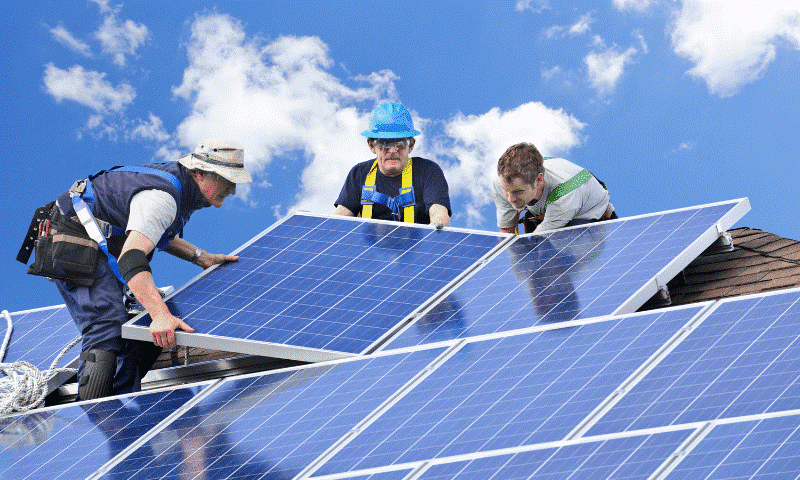
Victoria
All solar PV installations must comply with the conditions outlined in Solar Victoria’s Notice to Market by 1 July 2019.
In addition, all solar PV systems installed under the Solar Homes Program and Solar for Business Program must be included on the Clean Energy Council’s Approved Products Lists to qualify for a solar rebate. And guarantee the installed solar system’s safety, effectiveness, and reliability. Please check back frequently for the most recent data. These approved listings or modules are updated regularly to ensure the solar PV system you install is approved, like solar panels, solar batteries, solar hot water systems and solar inverters.
What is the Notice to Market?
The Solar Victoria Notice to Market clearly outlines the requirements and expectations for participation in the Solar Homes and Solar for Business programmes for the Victoria solar industry.
Participants must comply with the following Notice to Market’s terms to apply solar rebates and incentives to
Get 3 free solar quotes from our network of reliable, local installers. Get your free solar quotes today!

City of Melbourne planning permits and controls
Due to the design of the building or the ownership of the property, many structures have limited options for solar installation. Renters and residents of apartments or other multi-unit buildings lack access to appropriate roof space for solar installation.
For these residents, a different approach to gaining access to solar energy’s advantages is community energy.
Existing buildings
Installing a solar system requires a planning permit if:
- your property is affected by heritage overlay or included on the Victorian Heritage Register
- the solar panels are visible from the street (not a lane) or from a public park.
A planning permit is unnecessary for other circumstances where a solar system primarily services the land.
You may have committed an offence and be subject to various penalties if planning approval is required but not obtained or a planning permit requirement is not met.
See Planning applications for further details on submitting a planning permit.
New development approval requirements
The Local Policy (Clause 22.19) Energy, Water and Waste Efficiency of the Melbourne Planning Scheme describe the requirements. The scheme’s environmental targets can be attained by installing solar systems on new construction.
Planning controls for new and existing building permit
Even though no planning permission is necessary for installing the solar energy system, it is highly advised that the participant is aware of the planning controls and provisions relevant to the building and the properties nearby.
See Melbourne Planning Scheme to determine which controls under the planning scheme apply to the property.
New South Wales (NSW)
Do I need a permit to install solar in NSW?
The government of New South Wales has amended the law to make it easier to install utility-scale batteries and to allow the installation of large-scale solar systems on homes and businesses without requiring council approval.
If your proposed solar system installation meets all the requirements, you can go ahead with the solar system installation. You don’t need Council approval. For details of all requirements, please refer to clause 39(3) of the State Environmental Planning Policy (Infrastructure).

Tasmania
Installing solar panels in Tasmania
Getting connection approval
Your installer must obtain connection approval from the energy network provider and retailer before installing solar panels. You should check with your installer to ensure that they have completed this. TasNetworks is Tasmania’s energy network provider. But if you reside on Bass Strait Island, get in touch with Hydro Tasmania.
Getting the planning and building approval
An owner or agent might need and can apply for planning and building approval before installing a solar PV system.
Building approval is different to planning approval. Building approval requirements depend on whether the work is:
- low risk
- notifiable (medium risk), or
- permit (high risk).
The size of the panels and whether they will be flat on your roof are two elements that will determine this. If you require approval from a building surveyor or council permit authority, your installer should be able to let you know. For planning approval requirements, talk to your local council. Check this link for contact details and more information.
Queensland
Solar collector system
Building Regulation 2006 specifies that installing a solar system on a building’s roof is self-assessable work as of 1 November 2013. This indicates that a building certifier’s evaluation of the installation as part of a construction development application is unnecessary. Self-assessable labour also includes maintaining, repairing, or making changes to an existing solar panel.
Self-assessable building work must still adhere to all applicable building laws and standards. For example, plumbing requirements for solar hot water systems are other related criteria that keep applying. Through their planning tools, local governments will still be able to address any amenity and aesthetic concerns regarding solar collectors.
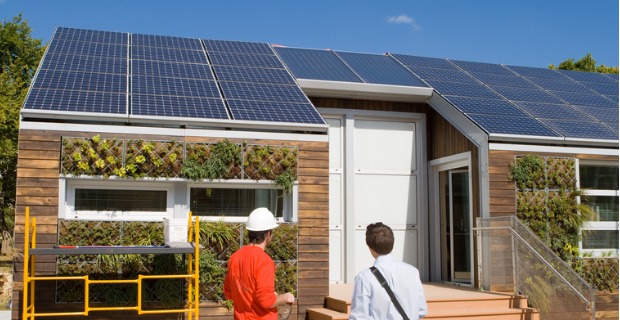
Western Australian (WA)
Do I need a permit to install solar in WA? A building permit is necessary before any building work, and associated work can start.
What is building work?
- the construction, erection, assembly or placement of a building or an incidental structure; or
- the renovation, alteration, extension, improvement or repair of a building or an incidental structure.
‘Incidental structure’ is defined under the Building Act 2011 as a structure attached to or incidental to a building. Therefore the placement (installation) of solar panels attached to or incidental to a building is considered building work requiring a building permit – unless an exemption applies.
What are the exemptions when a building permit is not required?
- A building permit is not necessary for construction work on a Class 10 building or an incidental structure that is considered to include solar panels in certain areas.
Some regions generally excluded from exemptions are regional areas, not metropolitan ones.
- Kinds of building work for which a building permit is not required. This schedule provides an exemption for attaching photovoltaic panels or solar hot water systems to the roof of Class 1 or Class 10a building that is not located in wind region C or D.
What is associated work?
If installing the solar panels requires alterations or additions to the building, such as additional strengthening to support the extra loads, then that work may require a building permit, as those works are in addition to the actual attachment of solar panels to the roof.
Determining whether construction work requires a building permit is the responsibility of the relevant permit authority, typically the local government. If the permit authority considers that building work has been done without a building permit, they are authorised by the Act to initiate an enforcement action. Check Building permit requirements for solar panels for further information about the permits in Western Australia.
South Australian (SA)
Do I need a permit in SA to instal solar? The permit to connect your solar PV system to the electric grid and a new import/export electricity meter are often arrangements by your solar installer on your behalf.
Your installer must complete the small embedded generation application on the SA Power Networks website to receive permission to connect to the grid.
You’ll also need an import/export meter. Your installer must communicate with your preferred energy retailer to have one installed if you don’t already have one. It will be a smart meter for your new import/export meter. Click this link for more information about connecting solar PV systems to the grid in South Australia.
North Territory (NT)
Building note for solar installations
The most typical solar energy systems are grid-connected systems that convert solar energy into electrical energy and transmit it back into the electricity grid. Grid connected systems are attached to the roof of a home or building.
The solar PV panels are not covered by the Deemed To Comply Manual (DTCM) data sheet and require separate certification as noted (building note) on the DTCM data sheet.
The Northern Territory Deemed To Comply Manual is referred to as the NTDTCM or DTCM. It is a set of standard drawings that is hundreds of pages long and covers the materials and parts allowed to be used in building projects or works in the NT. NT DTCM is also referenced in the Building Code of Australia as an acceptable construction manual for high-wind areas.
Some solar PV panel support frames and fixings to metal-clad roofs have been certified for inclusion in the NTDTCM by the Building Advisory Committee (BAC). Only the support frame and fixing are covered in the approved DTCM data sheets.
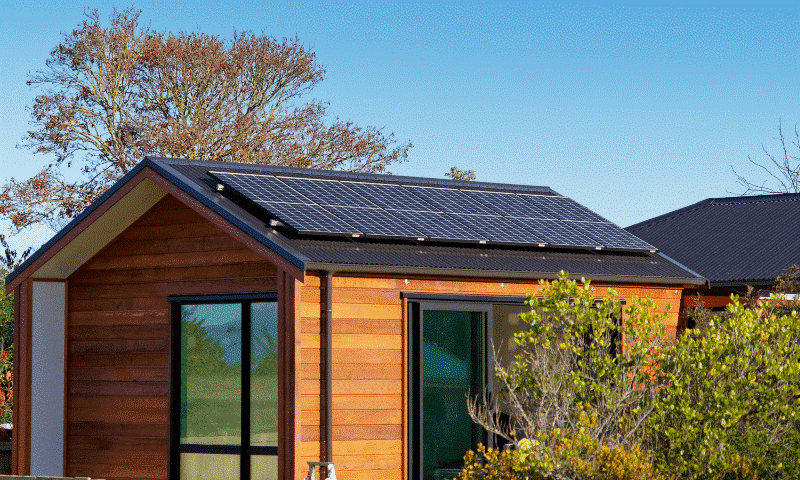
This building note is intended to notify the building certification industry that installing solar frames and solar panels requires a building permit before installing a solar PV system in Declared Building Control Areas of the NT.
The building certifier should ensure that the manufacturer provides documentation proving the structural integrity of the panels as part of the certification procedure in cases where an installer requests a building permit using the DTCM data sheet for the support frame.
A product’s inclusion in the DTCM is not required to obtain a building permit. Manufacturers can provide sufficient documentation and technical data about solar panels and panel mounting to get building certifiers and structural engineers to certify them and grant building permits.









